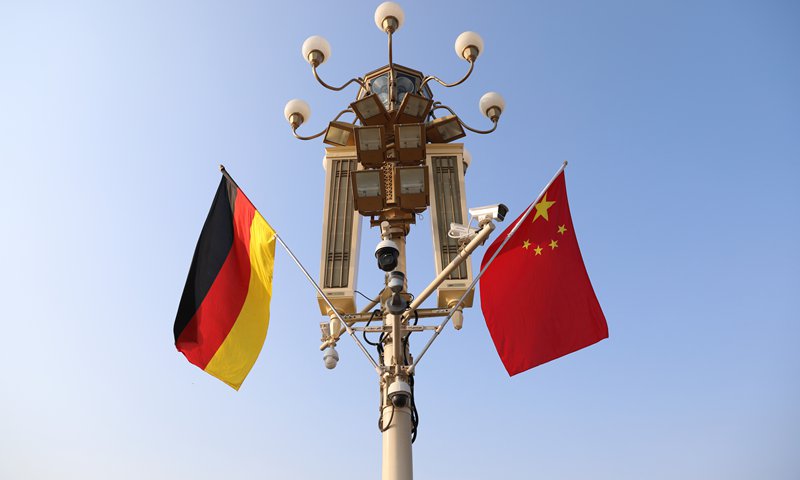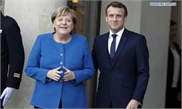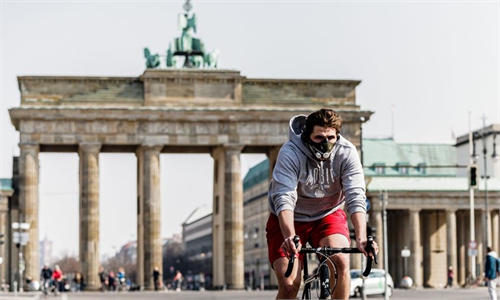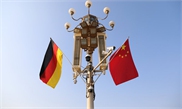
Photo: IC
Chinese Premier Li Keqiang held a video meeting with German Chancellor Angela Merkel on Thursday, during which Li urged both sides to expand two-way opening-up and fully utilize the "fast-track" channel to provide conveniences for enterprise cooperation, work resumption and maintain the stability of the industrial chain.
Chinese observers said the meeting set a positive tone that will allow relations between China and Germany to inch toward a new level, as Germany has taken a "pragmatic approach" despite US-led Western-world slander against China.
Germany accounts for about 28 percent of EU economy, which means the meeting could pave the way for steady progress on the China-EU bilateral invest treaty (BIT), analysts said.
Li pointed out during the meeting that China and Germany should jointly uphold multilateralism and facilitate the liberalization of trade and investment to achieve an economic recovery as concerns over the coronavirus ease. China is on the process of further opening up its market and is willing to offer a sound business environment for foreign companies, Li noted.
Merkel also said that her country wants stable relations with China and greater access to the Chinese market for foreign companies, the Associated Press reported.
The virtual talks followed a telephone conversation between Chinese President Xi Jinping and Merkel last week. Xi said that China stands ready to work with Germany and the EU to strengthen strategic cooperation, uphold multilateralism, tackle global challenges, and jointly add certainty to the current world of uncertainty, the Xinhua News Agency reported.
"China-Germany relations have shown positive signs, as the latter is taking a pragmatic approach and has realized that there is a great deal of room for future bilateral cooperation," Pang Chaoran, an associate research fellow at the Chinese Academy of International Trade and Economic Cooperation, told the Global Times on Thursday.
The US has been courting and pressing its European allies in an attempt to contain China. But relations between US and EU economies have been strained over the Trump administration's America First policy, creating a sense of urgency among the European bloc on the need to strengthen ties with China, analysts said.
China's auto industry is the world's first to recover amid the outbreak of COVID-19, and German automakers have outstanding advantages, making China the target market of Germany, according to Pan.
The two countries could also cooperate in other areas in post-virus recovery, such as machinery, chemicals and medicine, where the industrial chains of the two sides complement each other, he noted.
On Thursday, two deals between China and Germany were signed and witnessed by Miao Wei, China's minister for Industry and Information Technology and German's Federal Minister for Economic Affairs and Energy Peter Altmaier, underscoring the broad sphere of bilateral cooperation that exists amid the COVDI-19 pandemic.
Chinese electric automaker JAC signed a cooperation agreement with German automaker Volkswagen, while State Power Investment Corporation signed an agreement with Siemens.
China and Germany also arranged for two chartered flights in recent days to bring German executives back to their companies in China. The German Chamber of Commerce in China revealed to the Global Times on Friday that it expects more chartered flights to be arranged.
Germany is scheduled to take over the EU's rotating presidency in July. Pan noted that the positive attitude of Germany bodes well for the China-EU BIT, which is expected to be signed this year.




